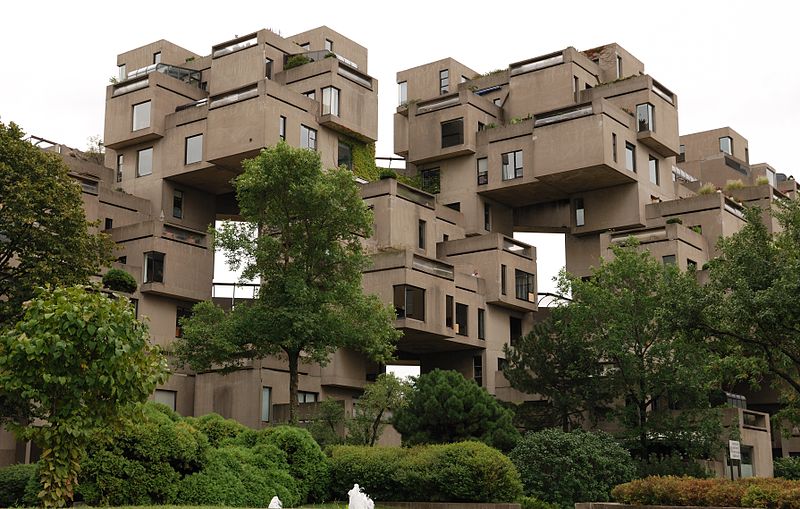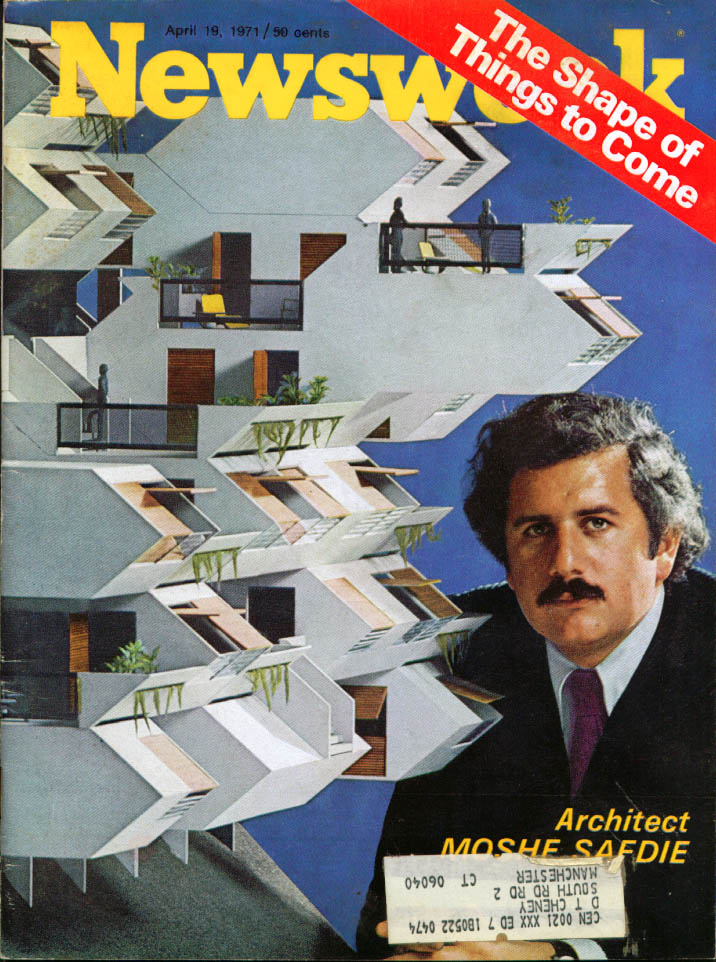Architect Moshe Safdie became a sensation while in his twenties when his Habitats tiny-box buildings wowed the world at Expo ’67 in Montreal. He landed on the cover of Newsweek just a few years later. John Heilpern recently interviewed Safdie for a Vanity Fair piece, revealing him to be something of a Method architect. An excerpt:
“While his own work can be spectacular, Mr. Safdie’s school of architecture amounts to an artless art when compared with the showy geometry of the fashionable starchitect. He’s constantly asking what the purpose of a building actually is—as his early mentor, Louis I. Kahn, once asked, ‘What does a building want to be?’
‘We live in a complicated, oppressive world with enormous cities and vast populations, and I try to contribute by making it more light and open and calm,’ Mr. Safdie said. ‘I try firstly to make buildings humane. Countries and places have a history, a story, and a culture. I want my buildings to take root and look as if they’ve always been there.’
It’s why, when he designed the Khalsa Heritage Centre, in the Indian holy city of Anandpur Sahib, he studied the Sikh religion for two years and wanted the contemporary museum to look as if it had been built 300 years ago.
‘It isn’t about pastiche or adapting what’s already there,’ he added. ‘It’s about trying to blend the future and the past.’
He has seen the future and it doesn’t always work. Soulless malls masquerading as new village squares, glass-box skylines, Trump taste, postmodern froufrou, and the Bilbao effect are all anathema to him.”
Tags: John Heilpern, Moshe Safdie


